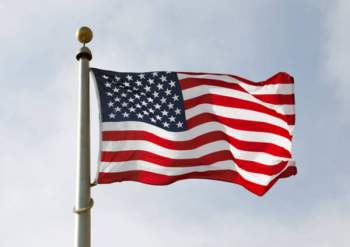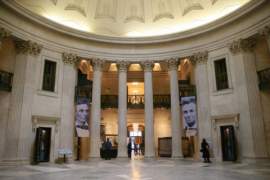
What Are The Implied Powers

Popular In Constitution
Purpose Of Lifetime Appointment And Pros And Cons Enumerated Powers Bicameral Legislature Background Article 3 Of The Constitution We The People 1st Amendment Who Wrote The Constitution Judicial Review Equal Protection Clause 5th Amendment 10th Amendment Three Fifths Compromise
The 1819 case of McCulloch v. Maryland addressed the scope of powers held by the Federal Government and expanded them in provoking the creation of the doctrine of implied powers granted under the Constitution. The Supreme Court thus placed limits of states to act against programs undertaken by the Federal Government. To provide justification for this decision, the Court appealed to Clause 18, Section 8 of Article I of the Constitution, as it is considered to represent the "Necessary and Proper Clause." This section grants Congress the ability to pass legislation which it finds "necessary and proper" for the task of exercising the other rights expressly given by the Constitution.
The implied powers doctrine came out of an attempt by the State of
Maryland to block under law the operations of the Federally-backed Second Bank
of the United States. The State Legislature thus placed a tax on the notes held
by all banks originally established outside of the State. Though it did not
specifically mention the Second Bank, the Supreme Court found that it could
reasonably establish that this was the purpose of the law, given that no other
out-of-state banks then existed in Maryland.
Under the heading of the
legislation, the Second Bank's president, James McCulloch, had been prosecuted
after he refused to pay the required fee. On appeal, the State made the
argument that the Constitution does not mention banks and that the Second Bank
of the United States thus lacked Constitutional protection.
The Supreme Court rejected the actions of the State by finding
that the Federal Government held implied powers under the Constitution, such as
it had exercised by creating Federal banks. Chief Justice Marshall wrote the
Court's opinion, referring to the political concept of the social contract to
establish the binding power of the Federal Government as provided by the Constitution.
Marshall then observed that the Constitution could not specifically address all
of the specific ways in which the Government would fulfill the duties to which
it was generally obligated, but rather implied the functions which the Government
might take on to meet its responsibilities.
The opinion referred to the Necessary and Proper Clause as the place in which the implied powers concept is explicitly addressed and that this stipulation was classed with other Congressional powers, rather than their limitations. As expressed in Marshall's opinion, the implied powers doctrine thereby established the broadly-defined ability of Congress to use powers which it was not barred from exercising rather than those which it was explicitly given the right to use.
Marshall did not place the existence of implied powers as an absolute limitation on other rights, but specified that an implied power might be limited by the finding that a right already granted to states or individual citizens conflicted with it. The outcome of McCulloch v. Maryland nevertheless placed new and wide-reaching limitations on the power of states and signaled the beginning of a newly broadened understanding of Federal power, particularly over individual State governments and laws.
NEXT: What Are The Labor Issues





















